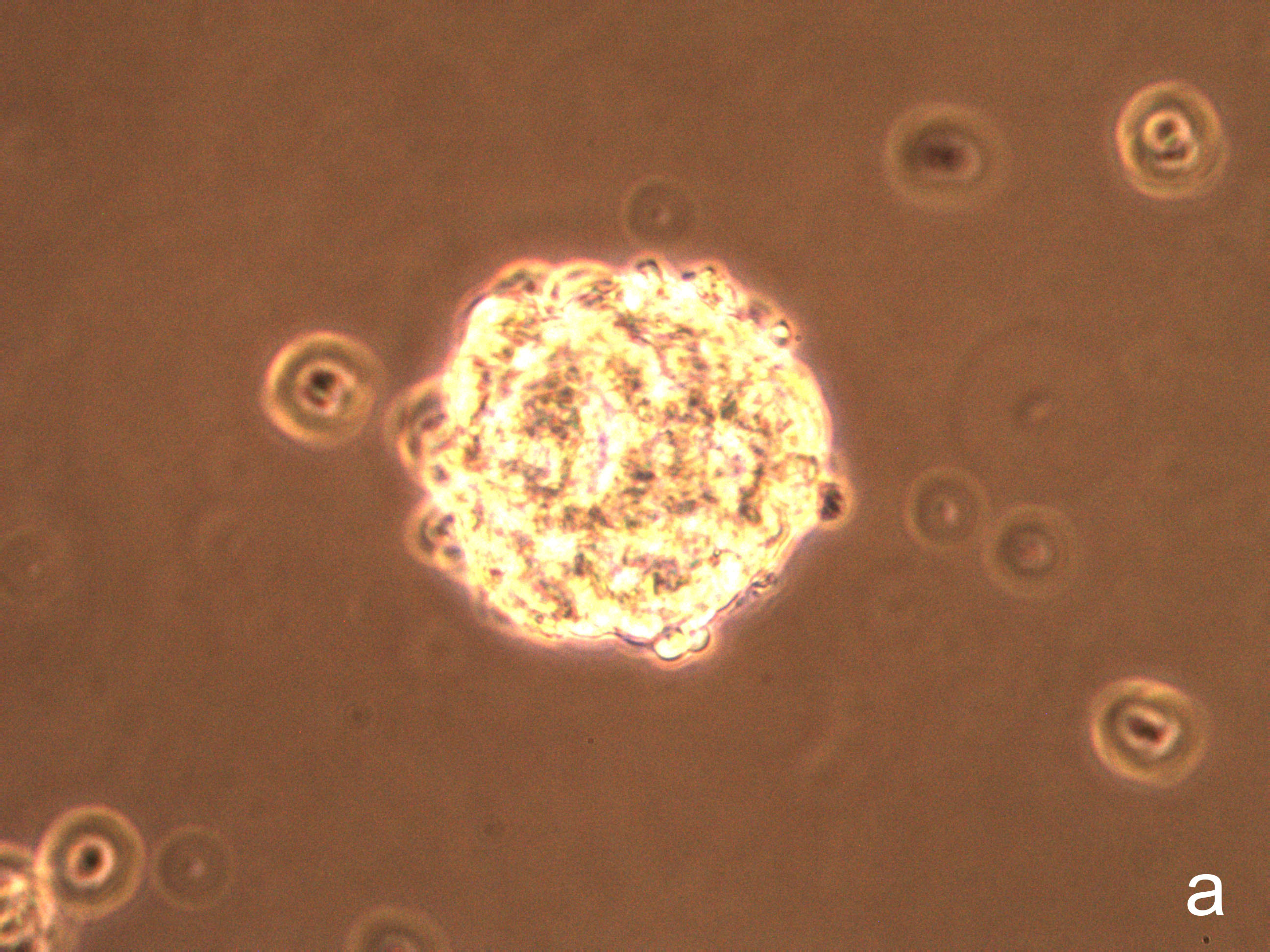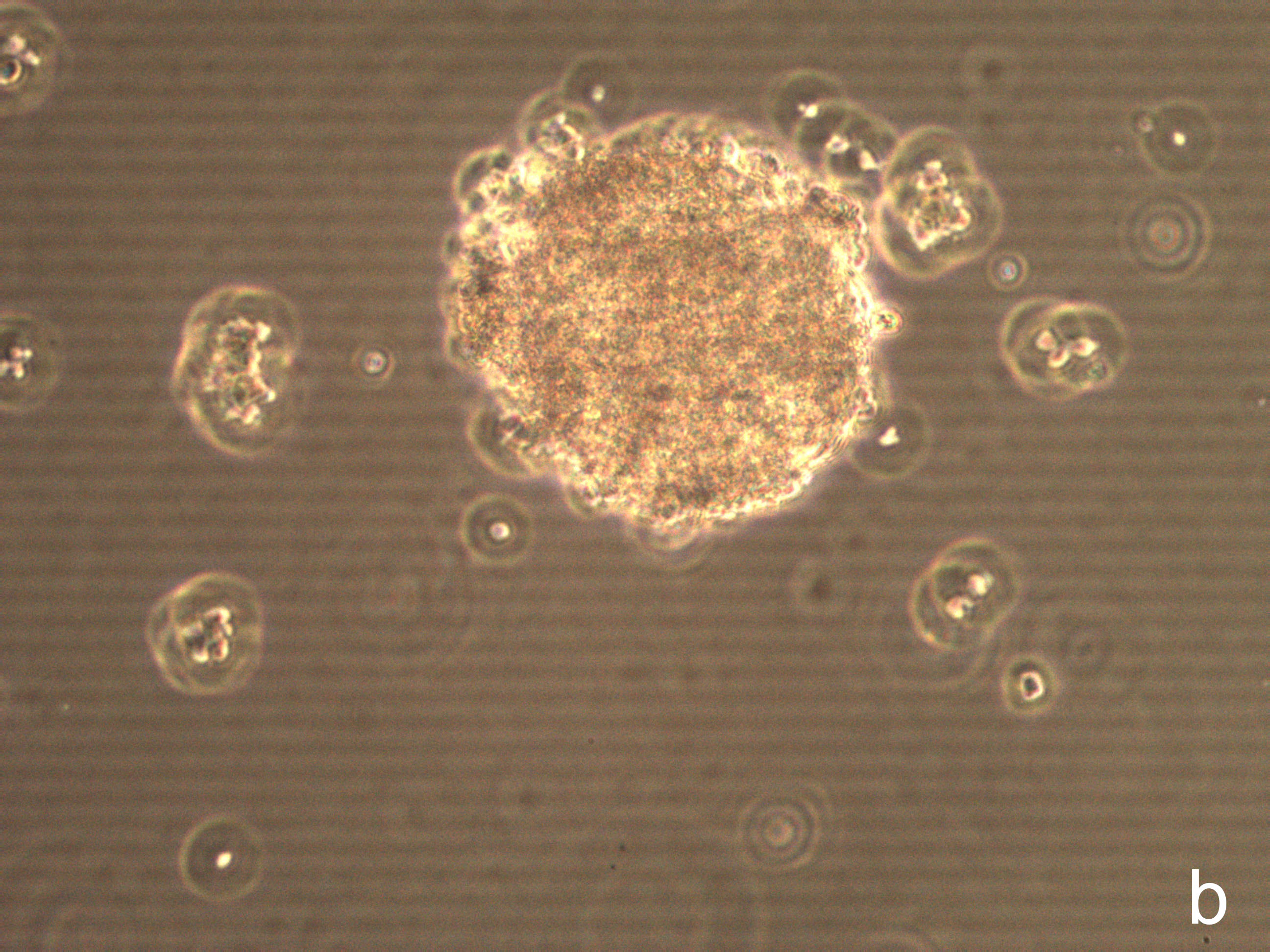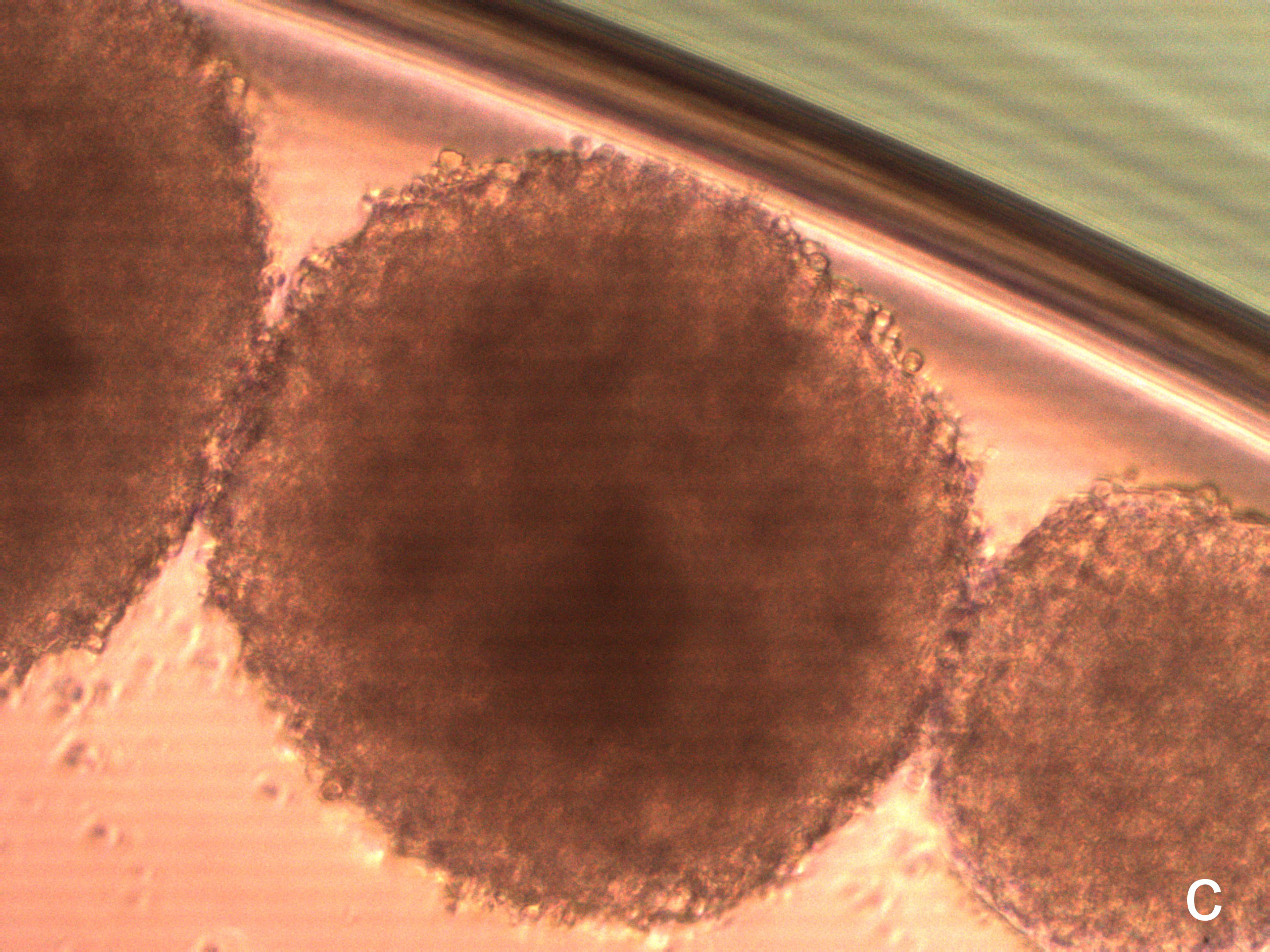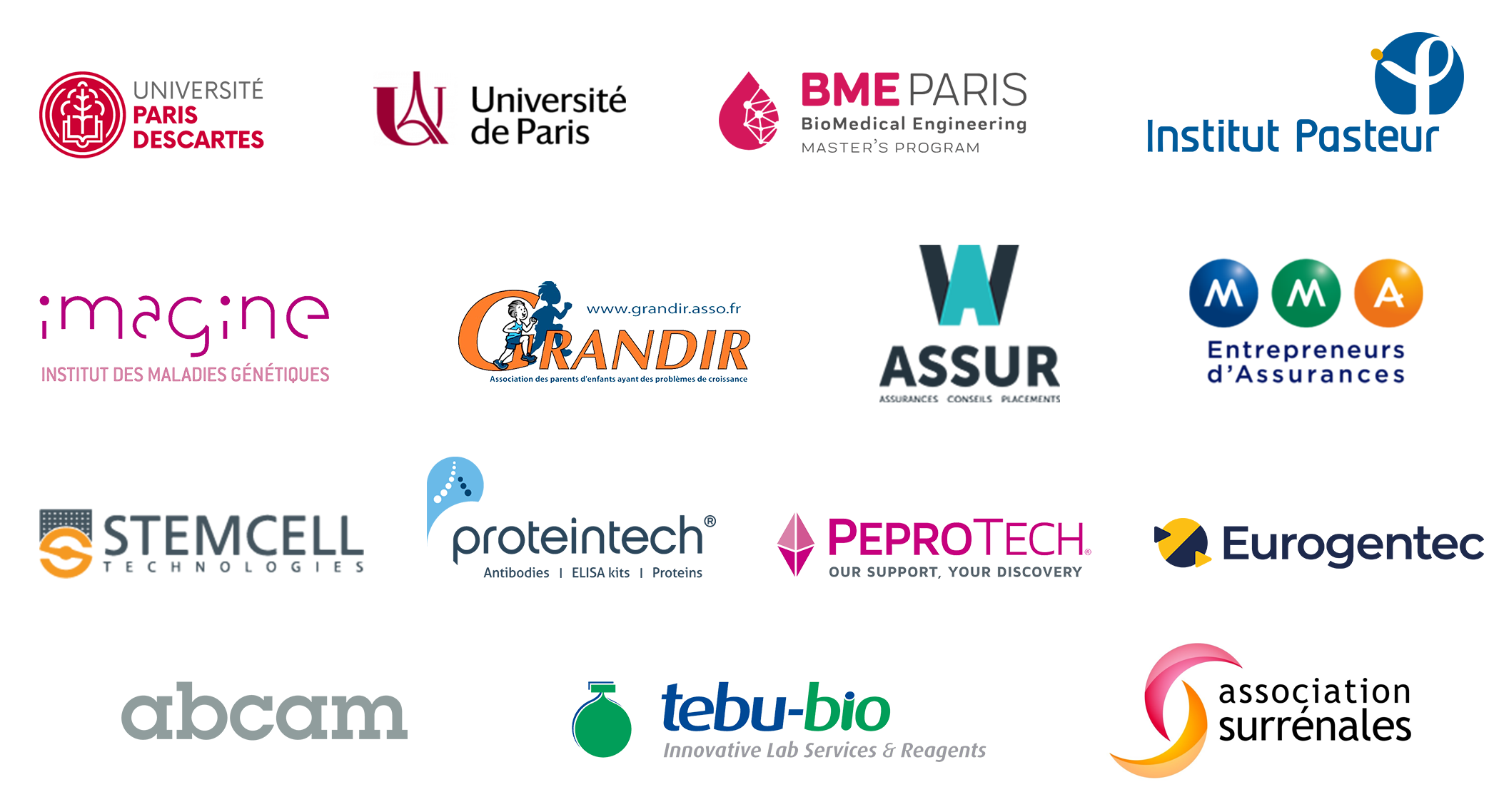Preliminary Results
Embryoid bodies formation from teratocarcinoma mouse cells
PCC4 embryonic cells are pluripotent stem cells derived from malignant tumors called teratocarcinoma 1 . They have the ability to differentiate in vitro into several cell types, allowing the study of early embryonic development in mammals 2 .
As part of our project, we investigated whether embryonic cells such as the PCC4 line could spontaneously form embryoid bodies (three-dimensional cell aggregates), which is the first essential step to develop organoids.
We cultured 10 6 PCC4 cells in DMEM medium with 10% fetal calf serum. The cells were cultured in non-adherent B10 petri dishes and in treated round bottom 96-well plates for 5 days. In order to test their resistance we centrifuged the embryoid bodies (800 RPM for 4min).
Embryoid bodies formed from PCC4 cells, a. and b. in a B10 petri dish c. in a 96-well plate
Using Confocal microscopy we were able to observe the formation of several embryoid bodies per well and per dish. In addition, the embryoid bodies were resistant to centrifugation.
These preliminary results suggest that PCC4 embryonic cells can spontaneously form embryoid bodies
References
1. Lehtonen, E., Laasonen, A. & Tienari, J. Teratocarcinoma stem cells as a model for differentiation in the mouse embryo. Int. J. Dev. Biol. 33, 105–115 (1989).
2. Rizzino, A. & Sato, G. Growth of embryonal carcinoma cells in serum-free medium. Proc Natl Acad Sci U S A 75, 1844–1848 (1978).






